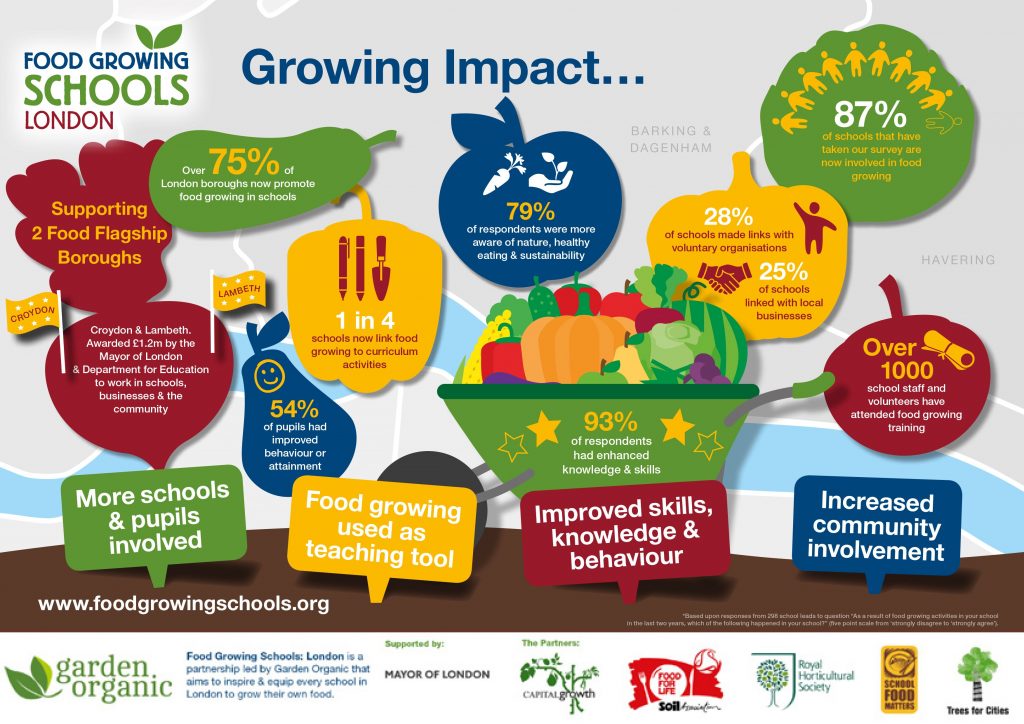Food Growing Schools London
Food Growing Schools: London is a partnership that was developed as a response to the Food Growing in Schools Taskforce Report developed in March 2012. The page presents a series of research documents about the benefits of food growing to schools, individuals, and the wider community, created by members of the partnership and other experts in the school food growing field.
School Food Matters
School Food Matters campaigns for fresh, sustainable school meals and delivers food education programmes to get children cooking, growing and out onto a farm.
The School Food Plan
The School Food Plan is exactly that – an agreed plan that has the support of the Secretary of State for Education and of the diverse organisations who are going to support head teachers to improve food in their schools.This plan is about good food and happiness. It is about the pleasures of growing, cooking and eating proper food. It is also about improving the academic performance of our children and the health of our nation.
Food for Life – Good Food for All
Good Food for All describes the impact of the Food for Life Partnership in its first five years of funding by the BIG Lottery. The report summarises the evidence from three independent research studies. It focuses in particular on the four main areas of impact: children’s health, tackling inequalities, improving education, and local enterprise and sustainability.
Sustain – The Children’s Food Campaign
The Children’s Food Campaign wants to improve young people’s health and well-being through, good food and real food education in every school, protecting children from junk food marketing, and clear food labeling that everyone including children can understand. We believe that these ideas will help to solve the current crisis in children’s diets.
RHS – Horticulture Matters
Horticulture Matters by the RHS was presented to the House of Commons calling for government action to urgently address the skills gap in the horticultural industry. A survey of 200 horticultural businesses conducted by the Society has demonstrated that more than 70% of horticultural businesses cannot fill skilled vacancies, nearly 20% are forced to recruit overseas and almost 70% claim that career entrants are inadequately prepared for work.







